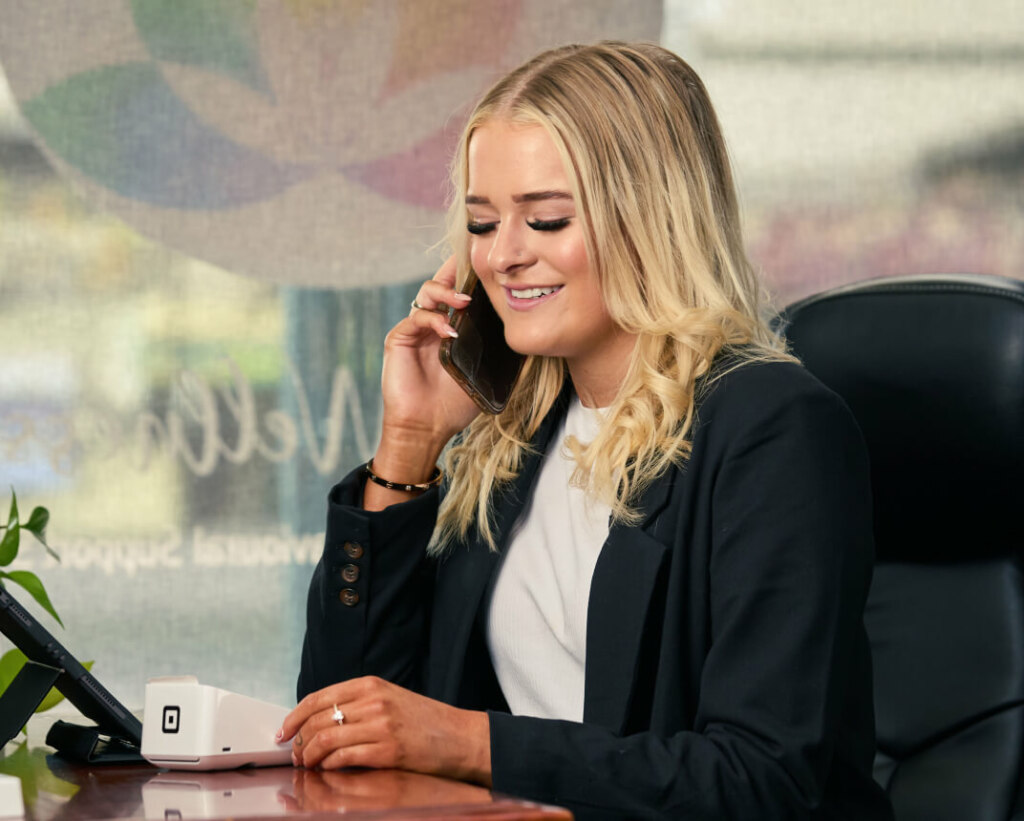Marital Counselling
Marital Counselling at Ararat Wellness transforms relationships. We strengthen bonds, improve communication, and resolve conflicts, guiding you towards a more fulfilling marriage. Rediscover the joy in your partnership with our expert support.

Our skilled marital counsellors provide a supportive environment for couples. We address each relationship’s unique challenges, fostering an atmosphere where partners can express themselves and strengthen their bond.
We guide couples through difficulties such as communication breakdowns and intimacy concerns. Our aim is to equip you with skills for a more harmonious partnership, nurturing mutual respect between spouses.
Give us a call
How Marital Counselling Works?
At Ararat Wellness, we identify each couple’s unique challenges. We address communication issues, intimacy concerns, and external stressors. Our goal: equip couples with tools to strengthen their relationship and achieve shared objectives.
Our certified therapists work closely with couples to create a personalised counselling plan that builds on relationship strengths, shared aspirations, and proven therapeutic techniques
This tailored plan guides our sessions. It ensures we address each couple’s specific needs. Our approach aims to foster relationship growth and emotional connection. We’re committed to helping couples achieve long-term success in their partnerships.

Marital Counselling Tips
Feeling stuck in your marriage? You’re not alone. Marital counselling isn’t just for crisis – it’s for any couple wanting a stronger bond. From improving communication to rekindling romance, professional guidance can transform your relationship. Ready to turn hurdles into stepping stones? Let’s explore marital counselling together and build a more fulfilling partnership.
Benefits of Marital Counselling
Marital counselling offers a range of powerful benefits that can transform relationships and enhance individual well-being. Let’s explore the key advantages of engaging in this therapeutic process:
Improved Communication
- Learn active listening techniques
- Express thoughts and feelings clearly
- Understand non-verbal cues
- Develop empathy and perspective-taking
Conflict Resolution Skills
- Identify root causes of conflicts
- Manage emotions during discussions
- Negotiate compromises
- Find win-win solutions
Enhanced Intimacy and Emotional Connection
- Encourage vulnerability and openness
- Explore emotional needs
- Address intimacy issues
- Foster understanding of love languages
Rebuilding Trust
- Address past betrayals
- Establish new boundaries
- Develop trust-rebuilding strategies
- Learn forgiveness techniques
Personal Growth
- Increase self-awareness
- Improve emotional regulation
- Enhance self-esteem
- Develop better coping mechanisms
Marital counselling helps couples build stronger, more resilient relationships, addressing current issues and fostering mutual growth. The benefits extend beyond the relationship, positively impacting overall life satisfaction.
Time for Marital Counselling?
Recognising relationship issues and the benefits of preventive care is key when considering marital counselling. Here’s when to seek help and signs you might need professional support:
- Early signs of trouble: Seek counselling at the first signs of persistent issues to prevent them from escalating.
- Desire for relationship improvement: Even without major problems, counselling can enhance and strengthen your relationship.
- Major life transitions: Consider counselling during significant changes like having children, career shifts, or relocating to navigate these transitions smoothly.
- Preventive measure: Proactive counselling can help maintain a healthy relationship and prevent future issues.
Common Signs of Relationship Issues
- Communication breakdown
- Emotional disconnection
- Lack of intimacy
- Trust issues
- Frequent arguments
- Criticism and contempt
- Growing apart
- Thoughts of separation
- Parenting conflicts
- Financial disagreements
Remember, seeking help is a sign of commitment to your relationship, not weakness.
The Marital Counselling Process
Marital counselling is a structured journey designed to improve relationships through targeted stages and techniques.
1. Initial Assessment
- Gather relationship history and current issues
- Individual meetings for sensitive topics
- Tailor approach to couple’s needs
2. Goal Setting
- Define clear objectives collaboratively
- Focus on communication, conflict resolution, intimacy
3. Therapy Sessions
- 90-minute sessions, face-to-face communication
- Therapist guides discussions and teaches skills
4. Homework and Exercises
- Between-session tasks to apply learnings
- Reinforce progress in daily life
5. Duration and Frequency
- Start weekly, may decrease over time
- Typically 12-25 sessions, adjustable based on needs
The process is flexible, aiming to develop skills for resolving issues during and after therapy.
Choosing a Marital Counsellor
Choosing the right marital counsellor is crucial in ensuring your therapy journey’s success. Here’s a guide to help you make an informed decision:
Counsellor Qualifications
- A master’s degree or higher in counselling, psychology, or marriage and family therapy
- Licensure as a marriage and family therapist (LMFT) or professional counsellor (LPC)
- Specialised training in couples therapy approaches like Emotionally Focused Therapy or Gottman Method
- Experience working specifically with couples and relationship issues
- Good standing with the state licensing board
Counsellor Q&A
- What is your approach to couples counselling?
- How much experience do you have working with couples?
- What is your success rate in helping couples improve their relationships?
- How do you handle conflict between partners in sessions?
- What are your policies on confidentiality?
- How long do you typically work with couples?
- What are your fees, and do you accept insurance?
Counsellor Compatibility
- You and your partner should both feel comfortable with the therapist
- The therapist should be unbiased and neutral, not taking sides
- Their communication style should resonate with you
- You should feel they understand your specific relationship issues
- The therapist should create a safe, non-judgmental environment
- Their values and worldview should align reasonably well with yours
- You should feel you can trust and open up to them
Finding the right marital counsellor is crucial. Take time to meet several therapists before deciding. The right fit enhances your counselling experience, making it a valuable investment in your relationship.

Why Choose Us For Marital Counselling?
Our Marital Counselling is not just about resolving conflicts; it’s about building a foundation for ongoing growth and happiness. We guide you through understanding and appreciating each other’s perspectives, enriching your relationship.
- Experienced relationship counsellors
- Tailored Counselling Approaches
- Rebuilding Emotional Intimacy
- Skills for Lasting Change
- Confidential Supportive Space
Frequently Asked Questions
What can we expect from marital counselling?
Typically, you can expect:
-
An initial assessment to gather background information
-
Goal-setting for what you want to achieve
-
Weekly 50-60 minute sessions, usually for at least 3-6 months
-
Learning communication and conflict resolution skills
-
Exploring relationship patterns and dynamics
-
Homework exercises to practice between sessions
-
How long does marital counselling take?
There’s no set timeline, but most couples attend weekly sessions for at least 3-6 months. Some may need longer-term support. The duration depends on your specific issues and goals.
Is it normal to feel nervous about starting counselling?
Yes, it’s very common to feel anxious or uncertain at first. A good counsellor will help put you at ease and explain the process.
What if my partner is reluctant to attend?
You can start by attending sessions on your own. Often, a reluctant partner becomes more open to joining once they see the benefits.
Will the counsellor take sides?
No, an ethical counsellor remains neutral and doesn’t take sides. Their role is to facilitate better communication and understanding between both partners.
Is marital counselling only for couples in crisis?
No, many couples use counselling proactively to strengthen their relationship or work through transitions. It can be beneficial at any stage.
How does marital and family therapy improve relationships?
Marital and family therapy is essential for effective relationship counselling. A mental health professional conducts this can help couples navigate relationship issues and improve their overall relationship satisfaction.
What if we decide to separate or divorce?
Counselling can help you navigate the separation process more amicably and develop a co-parenting plan if needed.
Is everything we discuss confidential?
Yes, counselling is confidential, with rare exceptions for safety concerns. Your counsellor should explain their confidentiality policy.
How much does it cost?
Fees vary widely. Some counsellors offer sliding scale fees based on income. Insurance may cover a portion of the cost. Remember, asking your counsellor questions or voicing your concerns about the process is okay. Open communication will help you get the most out of marital counselling.
Still have a question in mind?
Call Us – 0493 819 355We Can Help You
Got a question? A doubt?
Our team is here to answer all your questions about your options.
Reach out and let's start a conversation.
Or Give us a Call 0493 819 355
